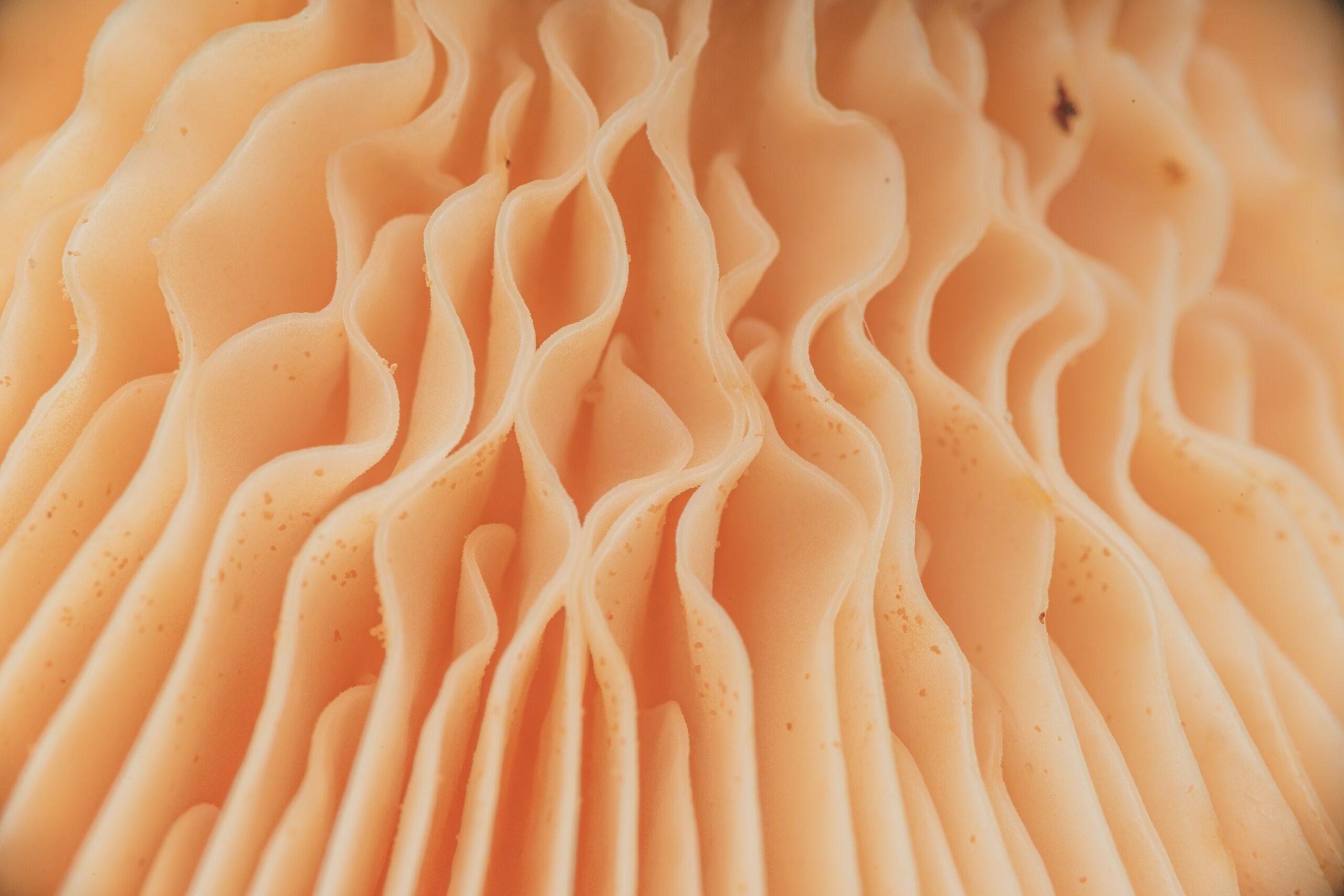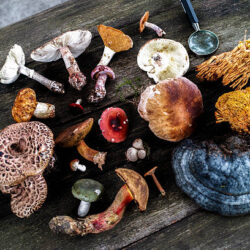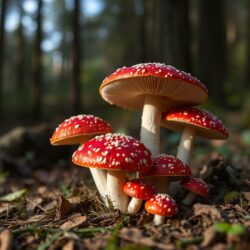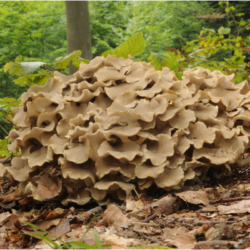Does the idea of using medicinal mushrooms surprise you? Take a deep breath and take the time to read what follows. Mycotherapy uses mushrooms used in oriental medicine for many years. However, it is only recently that Fungi reign has gained popularity.
Do you know Reishi, this mushroom with multiple virtues , nicknamed the “ Swiss army knife ” of the kingdom of Fungi? Let yourself be surprised by the incredible benefits of this medicinal mushroom used for millennia in oriental medicine. Immerse yourself in the fascinating world of mycotherapy and discover how Reishi is gaining popularity in the modern world. Is it possible that this ancestral mushroom provides natural solutions to contemporary health challenges? Take a deep breath and take the time to read what follows to explore the mysteries and miracles of Reishi.
Is the effectiveness of medicinal mushrooms really real?
Nowadays, more and more scientific studies highlight the effectiveness of mycotherapy. Particularly concerning people with chronic pathologies. In addition, scientists from Hong Kong Baptist University and Peking University have conducted research on the effect of certain mushrooms in the case of chronic intestinal disorders . In conclusion, the results were striking: The diversity of their intestinal microbiota increased as well as the localized anti-inflammatory response .
What is Reishi?
Reishi, otherwise called Ganoderma lucidum, appears in the form of a fan of orange to reddish brown color. On the other hand, this mushroom is rare in nature. Thousands of years ago, when Reishi was first used, its use was restricted to royalty.
Today, grown for commercial purposes, it can be consumed in different forms: Beauty products , tinctures, infusions, serums, food supplements and many other products.
Is Reishi beneficial for the immune system?
Historically, Reishi has been used to boost immunity . Since it is rich in complex sugars, called beta-glucans, it is able to help us avoid infectious conditions by stimulating the immune system .
Historically, reishi has been used to strengthen the immune system, and modern research is beginning to support this traditional use. This is because reishi is rich in complex sugars, called beta-glucans , which play a crucial role in immunity.
Beta-glucans are molecules found in the cell walls of many types of mushrooms, including reishi. These molecules have the ability to stimulate the immune system by activating a series of responses that can help fight infections and diseases. When we ingest reishi, these beta-glucans are recognized by specific receptors in our body, triggering a cascade of immune reactions. These reactions include the activation of certain immune cells, such as macrophages and lymphocytes , which play a key role in our body’s defense against pathogens.
These immune cells, once activated, can destroy bacteria, viruses and other harmful microorganisms, prevent infections and even help control and eliminate cancer cells. Indeed, some research suggests that beta-glucans may even help reduce tumor growth by stimulating the immune system. Additionally, the beta-glucans in reishi appear to have a modulatory effect, meaning they can help regulate the immune system, increasing its activity when necessary, such as in cases of infection, but also calming it to avoid reactions. excessive or autoimmune responses. This may be especially beneficial for those with weakened immune systems or autoimmune conditions.
Is Reishi effective in cases of fatigue and stress?
This medicinal mushroom is called an adaptogen because it helps the body fight against stress . In a study involving people suffering from neurasthenia (a true state of mental and physical exhaustion), the consumption of a Reishi extract helped to soothe the patients’ irritability , as well as their pain.
More recently, researchers have found that people who regularly consume mushrooms are less prone to depression. Stress and fatigue are omnipresent phenomena in our modern society. If you often feel exhausted or stressed, reishi might be a natural solution to consider.
Indeed, reishi is considered an adaptogen, that is to say a natural substance that helps the body adapt and resist different types of stress – whether physical, chemical or biological. Adaptogens work to restore balance to the body, reducing the negative impact of stress on health. When we face prolonged stress, it can lead to adrenal fatigue, hormonal imbalance, and a variety of other health problems. Adaptogens like reishi can help support the adrenal glands , regulate the hormonal response to stress, and build the body’s resilience.
In addition to its adaptogenic properties, reishi is also known for its energizing effects. Rather than providing a quick burst of energy that is often followed by a crash, like caffeine, reishi provides a sustained, balanced increase in energy. This can help combat fatigue and increase vitality without the side effects often associated with stronger stimulants. Additionally, reishi has a calming effect on the nervous system, helping to reduce anxiety and promoting a calmer state of mind. This can be especially beneficial for those who have difficulty relaxing or sleeping due to stress.
It is important to note, however, that while reishi can help manage stress and fatigue, it is not a miracle cure. A healthy lifestyle including a balanced diet, regular exercise and quality sleep is essential for maintaining optimal energy levels and overall good health. As always, it is recommended to consult a healthcare professional before starting to take reishi or any other supplement.
Does Reishi have an impact on cancer?
Many studies have been carried out on the impact of Reishi on cancer cells. Indeed, the results are impressive! Particularly with regard to a small study published in the Journal of Oncology. This study revealed the fact that the tumors had regressed in three patients who took Reishi. Indeed, researchers believe that beta-glucans found in medicinal mushrooms may prevent the growth of new blood vessels , which is essential because cancer cells need a regular blood supply to grow. In addition, the triterpenes (or essential oils) contained in Reishi could also inhibit the development and metastasis (tumor formed from cancer cells which have detached from a first tumor (primary tumor) and which have migrated through the vessels lymphatics or blood vessels in another part of the body where they have settled.) tumors. Other research indicates that mushrooms may reduce nausea caused by chemotherapy and improve its effectiveness.
New clinical perspectives on Reishi
While Reishi (Ganoderma lucidum) is recognized in traditional Asian medicines for its health benefits, recent clinical studies have expanded our understanding of its applications and limitations. This mushroom is used as an immunostimulant for patients suffering from AIDS and cancer , thanks to its active constituents, including beta-glucan polysaccharides and triterpenes.
Beyond immunomodulation: Diversified effects
Clinical research has highlighted the immunomodulatory (1), renoprotective (2), anti-inflammatory (3) and hepatoprotective properties of Reishi. These discoveries, validated in vitro and in vivo, open the way to diversified therapeutic applications. For example, Reishi has demonstrated beneficial effects in the treatment of lower urinary tract symptoms in men and has exerted mild antidiabetic actions , although its impact on cardiovascular risk factors linked to type 2 diabetes is not yet known. clearly established.
Reishi and oncology: A complementary approach
In oncology, the potential of Reishi is particularly remarkable. In addition to its immunomodulatory effects, the mushroom has shown chemopreventive properties , an ability to alleviate chemotherapy-induced nausea , and enhance the effectiveness of radiotherapy (4). Preliminary studies also suggest that Reishi may increase the sensitivity of ovarian cancer cells to cisplatin and reduce nephrotoxicity associated with this treatment.
Limitations and implications for future research
It is crucial to note the current limitations in the use of Reishi. Adverse effects have been observed in some cases, including leukocyte toxicity and increased tumor markers in patients treated for gastrointestinal cancers . These results highlight the importance of caution and the need for additional studies to confirm the safety and effectiveness of Reishi as an adjuvant treatment in oncology.
What future for mycotherapy?
Medicinal mushrooms are proving to be a formidable weapon in the treatment and prevention of certain conditions. Note that studies often indicate that consuming mushrooms in the form of concentrated food supplements offers more convincing results. Indeed, these extracts have excellent bioavailability: Their action on cells is then optimal.
Mycotherapy could prove useful not only for a multitude of conditions. Without forgetting cognitive disorders or even mood disturbances. Moreover, the Lion’s Mane mushroom seems to have a real impact on the cognitive functions of patients at high risk of memory loss. Finally, Reishi seems to be an option of choice in the management of problems related to insomnia.
Sources:
- (1) https://pubmed.ncbi.nlm.nih.gov/15465337/
- (2) https://pubmed.ncbi.nlm.nih.gov/11789593/
- (3) https://pubmed.ncbi.nlm.nih.gov/21945912/
- (4) https://pubmed.ncbi.nlm.nih.gov/24525691/
- https://www.ncbi.nlm.nih.gov/pmc/articles/PMC7826851/
- https://www.ncbi.nlm.nih.gov/pmc/articles/PMC4320875/
- https://pubmed.ncbi.nlm.nih.gov/24083788/
- https://pubmed.ncbi.nlm.nih.gov/16428086/
- https://pubmed.ncbi.nlm.nih.gov/23557365/
- https://pubmed.ncbi.nlm.nih.gov/25571788/
- https://pubmed.ncbi.nlm.nih.gov/15857210/
- https://pubmed.ncbi.nlm.nih.gov/34333177/





